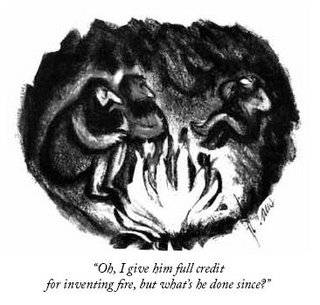For instance, more than 100,000 young women were killed in fires in India in a single year, and many of those deaths were tied to domestic abuse, according to a new study published on Monday March 02, 2009.
Business Line reported on November 9, 2008:
"...In rural areas (of India), firewood and chips is by far the most important energy source for cooking. There has been no change over the years — as many as 75.4 per cent of rural households primarily depended on this source in 2006-07, against 75.5 per cent in 1999-00...Surprisingly, 41 per cent of urban households in Kerala depend on firewood and chips, followed by Chhattisgarh and Madhya Pradesh (35-36 per cent) and Rajasthan (34 per cent)..."
Reuters reported on October 26, 2008:
"A new study shows that humans had the ability to make fire nearly 790,000 years ago, a skill that helped them migrate from Africa to Europe.
By analysing flints at an archaeological site on the bank of the river Jordan, researchers at Israel's Hebrew University discovered that early civilizations had learned to light fires, a turning point that allowed them to venture into unknown lands..."
Maybe.

Artist : Robert Kraus, The New Yorker, July 1960
No comments:
Post a Comment